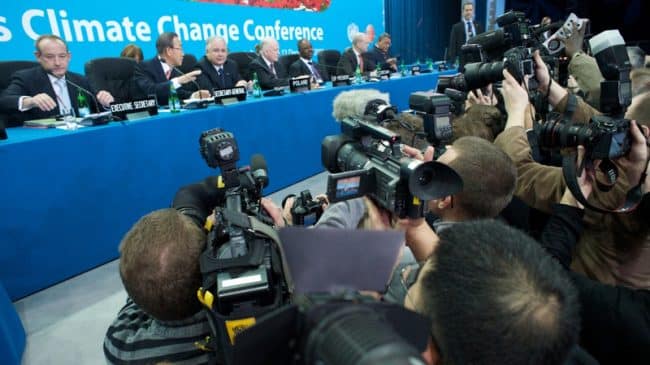At RealClearMarkets, Reason Fellow Tom Tanton writes:
Representatives from the U.S. and 195 other countries are meeting in Lima, Peru for the 20th Conference of the Parties of the United Nations Framework Convention on Climate Change, hoping to lay the foundation for a major treaty to reduce global greenhouse gas emissions. But evidence shows this is the wrong approach to address climate change and negotiators would be better off focusing on market competition and innovation, which have proven able to reduce emissions intensity and promote economic growth.
The U.S. is seeking an agreement based on voluntary reductions in carbon dioxide emissions by each nation. In an attempt to kick start that process, it recently announced a bilateral agreement with China in which the U.S pledged to slash its own greenhouse gas emissions by more than 25 percent by 2025 (compared with 2005 levels). China is under no obligation to cut emissions until 2030.
While the U.S. is promoting voluntarism internationally, at home it is foisting new, heavy-handed regulations on business sectors to meet its stated commitments. But these regulations are probably not necessary and they are almost certain to drive up costs.
U.S. energy-related carbon dioxide emissions have declined in five of the past eight years, led by emissions reductions in the electric power sector. In 2013, carbon dioxide emissions in that sector were 15 percent below the 2005 level, despite increased electricity consumption.
